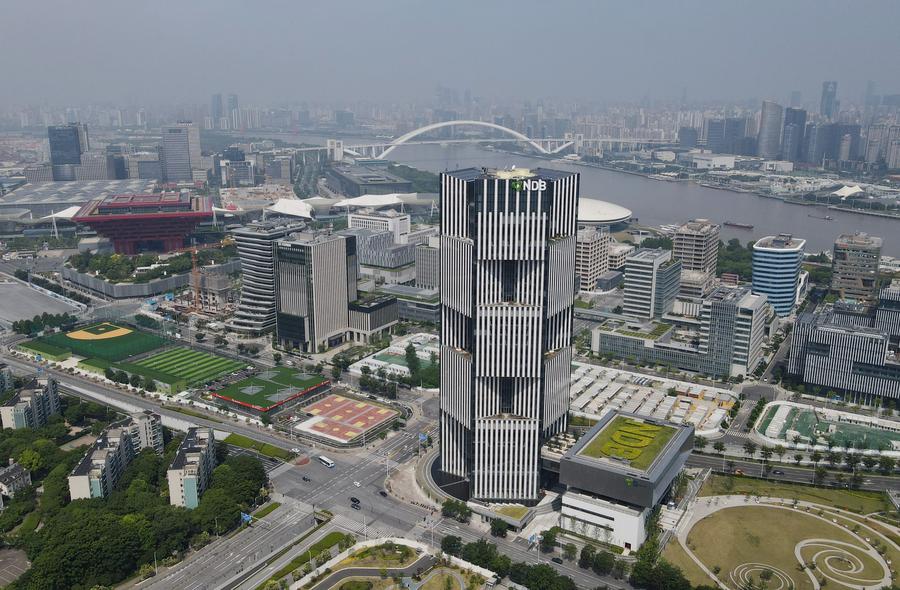Xinhua Commentary: Closer BRICS cooperation promises more inclusive development

This photo shows a view of the Kazan Kremlin in Kazan, Russia, Oct. 20, 2024. (Xinhua/Ding Haitao)
In a world that increasingly demands cooperation, the expanded BRICS offers a vision grounded in the belief that common development and sustainable progress require collaboration among nations, large and small.
BEIJING, Oct. 22 (Xinhua) -- As BRICS leaders convene in Russia's city of Kazan, the world is grappling with overlapping global challenges like geopolitical tensions, climate change, food security, and financial instability.
The newly expanded group is expected to strengthen cooperation among nations of the Global South and advance efforts to face those challenges and improve global governance toward greater equity and inclusiveness.
BRICS is not merely a political or economic cooperation mechanism but a platform for diverse nations to work together on common goals of development and prosperity. Its expansion reflects the consensus within the Global South that a wider array of voices must be included in addressing the complex issues facing the world today.
This inclusive approach offers a valuable complement to existing global institutions. While organizations such as the United Nations and the World Bank remain crucial, BRICS brings new energy and perspectives by prioritizing the needs and aspirations of the Global South.
A key contribution of BRICS lies in its efforts to advance inclusive economic globalization. For decades, the benefits of global economic growth have disproportionately flowed to the West, leaving much of the developing world on the margins. Closer and enlarged BRICS cooperation promises to rebalance this dynamic by promoting investment, infrastructure development, and trade that align with the specific priorities of the Global South.

Aerial photo taken on June 17, 2022 shows the headquarters building of the New Development Bank (NDB), also known as the BRICS bank, in east China's Shanghai. (Xinhua/Fang Zhe)
The expansion of BRICS further reinforces its commitment to inclusiveness by bringing in new members from diverse political and economic backgrounds, ensuring that underrepresented regions have a greater voice in global affairs.
BRICS' dedication to inclusiveness, common development, and shared progress also demonstrates a commitment to strengthening multilateralism at a time when global cooperation is in dire need. As geopolitical tensions and economic uncertainties grow, the ability of diverse nations to come together and find common ground is more important than ever.
Since its inception, BRICS has prioritized open dialogue, consensus-building, and mutual respect, principles essential for addressing complex global challenges such as climate change, public health crises, and sustainable development. As the BRICS family is growing bigger, this collaborative approach not only deepens trust among member nations but also ensures that their solutions meet the needs and aspirations of the Global South.
As BRICS grows, it plays a more critical role in fostering more inclusive and equitable global governance. In a world that increasingly demands cooperation, the expanded BRICS offers a vision grounded in the belief that common development and sustainable progress require collaboration among nations, large and small.
As the challenges of the 21st century become more intertwined, the world needs platforms like BRICS that bring more nations together to figure out feasible solutions and build a sustainable future for all.


